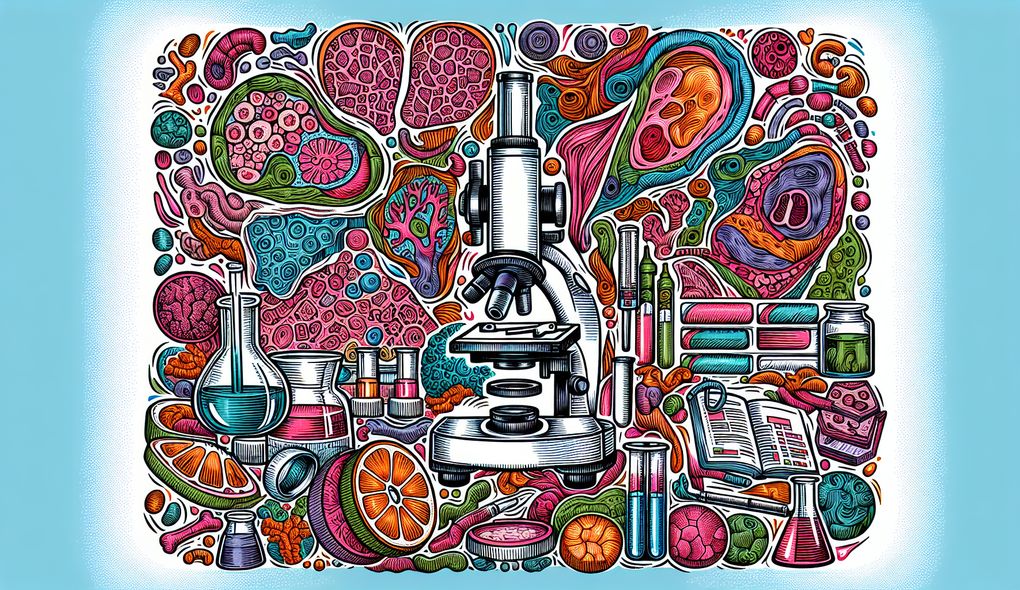How do you handle challenging or complex cases in your work as a Pathologist?
INTERMEDIATE LEVEL

Sample answer to the question:
In my work as a Pathologist, I handle challenging or complex cases by first thoroughly analyzing the patient's medical history and test results. This helps me understand the unique aspects of the case and determine the appropriate diagnostic approaches. I collaborate closely with my team of healthcare professionals to gather additional information and insights. I use my strong analytical and problem-solving skills to interpret the data and identify any abnormalities or diseases. Additionally, I stay updated with the latest advancements in pathology to incorporate new testing protocols if necessary.
Here is a more solid answer:
As a Pathologist, I handle challenging or complex cases by applying my strong analytical and problem-solving skills. I begin by thoroughly reviewing the patient's medical history, including lab test results and radiology reports. This helps me gather crucial information about the case and understand any underlying conditions or factors. I collaborate closely with my team of healthcare professionals, including radiologists, surgeons, and clinical laboratory staff, to discuss and validate my findings. This collaboration ensures a comprehensive approach to diagnosing and treating the patient. I incorporate my knowledge of clinical laboratory regulations and standards to ensure accurate and precise testing methodologies. If needed, I may request additional tests or consult with specialists in other fields to gather more insights. Continual education and staying updated on the latest advancements in pathology is crucial for handling challenging cases effectively.
Why is this a more solid answer?
The solid answer expands on the basic answer by providing specific details on the candidate's approach to handling challenging or complex cases. They mention the steps they take during the analysis process, the importance of collaboration with the healthcare team, and their knowledge of clinical laboratory regulations. However, the answer could be improved by providing more specific examples or experiences related to challenging cases.
An example of a exceptional answer:
Handling challenging or complex cases in my work as a Pathologist requires a comprehensive and systematic approach. First, I thoroughly analyze the patient's medical history, paying close attention to any significant factors or anomalies. I then utilize my strong analytical and problem-solving skills to interpret test results and form a diagnostic hypothesis. Collaboration with other healthcare professionals is crucial at this stage, as we discuss and validate the findings to ensure a multi-disciplinary approach to patient care. For complex cases, I may perform additional tests or consult with specialists in other fields to gain further insights. Moreover, my expertise in clinical laboratory regulations and standards allows me to ensure the accuracy and precision of testing methodologies. Continuing education and staying updated with advancements in pathology is integral to my practice. In one challenging case, I encountered a rare autoimmune disorder that presented with atypical symptoms. Through careful analysis and collaboration, we were able to identify the condition and provide appropriate treatment, resulting in a positive outcome for the patient.
Why is this an exceptional answer?
The exceptional answer provides a detailed and comprehensive response to the question. The candidate outlines a systematic approach to handling challenging or complex cases, emphasizing the importance of thorough analysis, collaboration, and expertise in clinical laboratory regulations. They also provide a specific example that demonstrates their ability to successfully diagnose and treat a rare disease. This answer effectively showcases the candidate's skills, knowledge, and experiences related to the job responsibilities.
How to prepare for this question:
- Familiarize yourself with relevant clinical laboratory regulations and standards to ensure you can confidently apply them in your work.
- Stay updated with advancements in pathology by attending conferences, workshops, and reading relevant literature.
- Develop strong analytical and problem-solving skills by actively seeking challenging cases and utilizing evidence-based approaches.
- Practice effective communication and collaboration skills to work cohesively with the healthcare team.
- Consider reflecting on past challenging cases you have encountered and the strategies you used to successfully handle them.
What are interviewers evaluating with this question?
- Strong analytical and problem-solving skills
- Ability to work cohesively with a team of healthcare professionals
- Knowledge of clinical laboratory regulations and standards

